 |
||
|
HOME
|
US Navy -
ships
|
US Navy - air
units
|
USMC - air
units
|
International
Navies
|
Weapon Systems
|
Special Reports |
||
|
US Navy - Guided Missile Destroyer DDG 67 - USS Cole |
||
|
||
| 02/20 | ||
|
Type,
class: Guided Missile Destroyer - DDG; Arleigh Burke
class, Flight I Builder: Ingalls Shipbuilding, Pascagoula, Mississippi, USA STATUS: Awarded: January 16, 1991 Laid down: February 28, 1994 Launched: February 10, 1995 Commissioned: June 8, 1996 IN SERVICE Homeport: Naval Station Norfolk, Virginia Namesake: Sergeant Darrell Samuel Cole (1920-1945) Ships Motto: GLORIA MERCES VIRTUTIS (Glory is the Reward of Valor) Technical Data: see: INFO > Arleigh Burke class Guided Missile Destroyer - DDG |
||
| images | ||
 Mk-45 gun fire exercise - Gulf of Oman - June 2017  5th Fleet AOR - February 2017 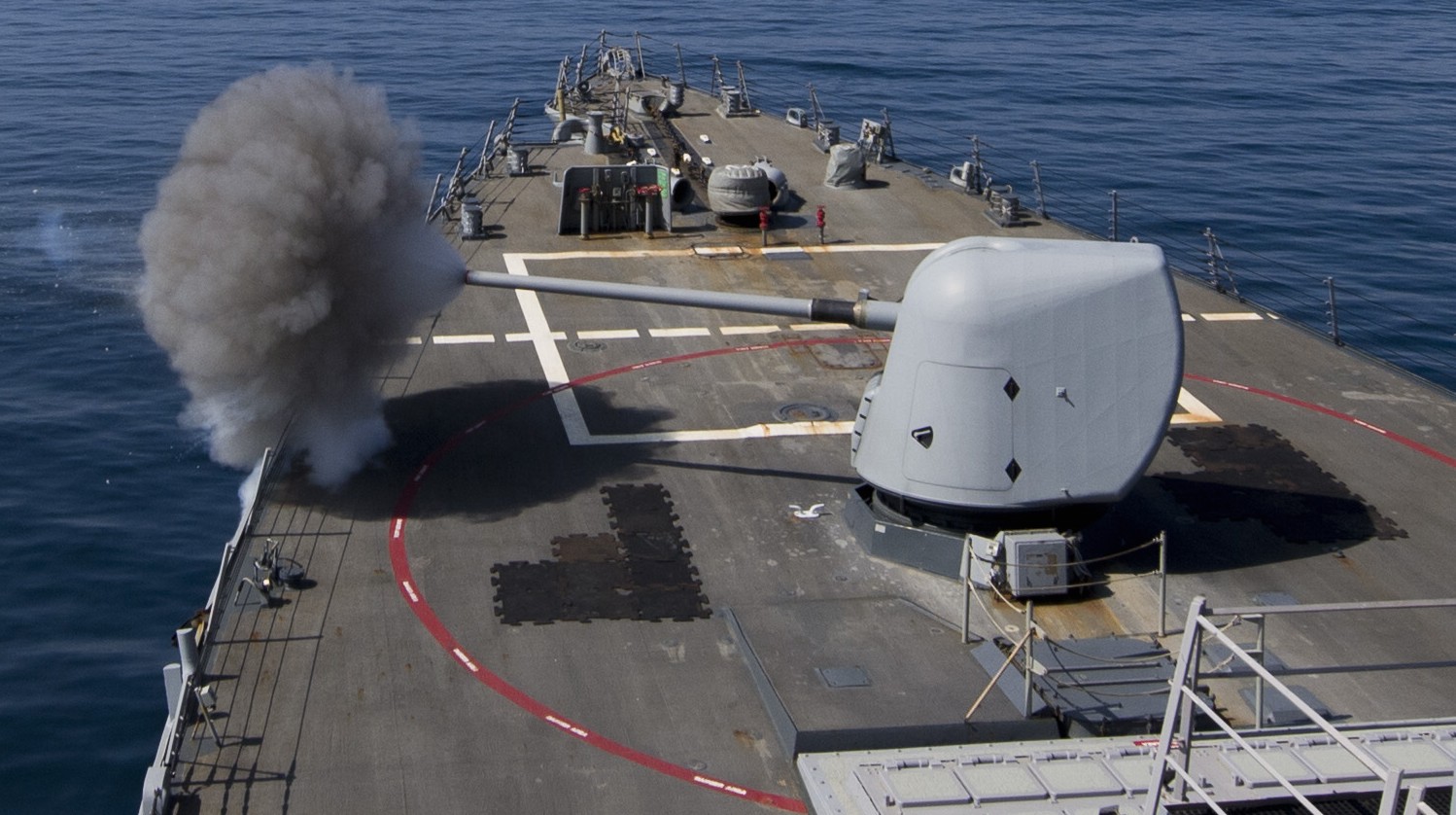 Mk-45 gun fire exercise - 5th Fleet AOR - February 2017  Atlantic Ocean - July 2016 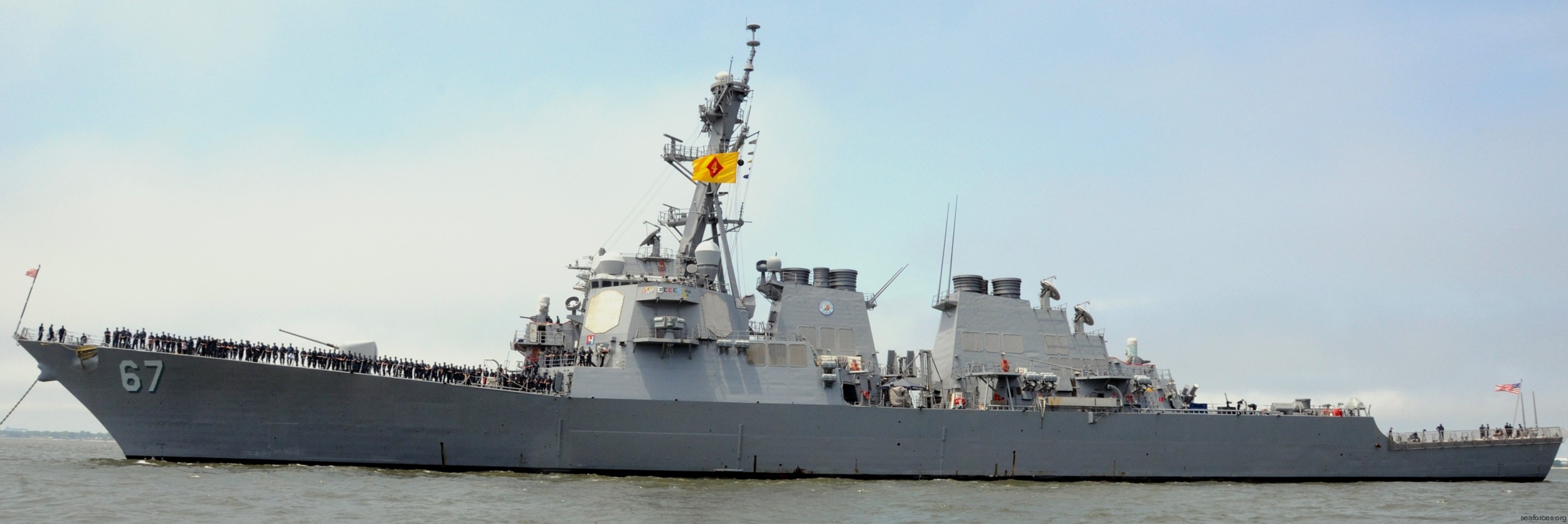 Naval Station Norfolk, Virginia - June 2016  Port Everglades, Florida - May 2016  Port Everglades, Florida - May 2016  Port Everglades, Florida - May 2016  Mediterranean Sea - December 2014  Mk-38 Mod.2 machine gun system - Mediterranean Sea - December 2014  machinery control console - Mediterranean Sea - December 2014 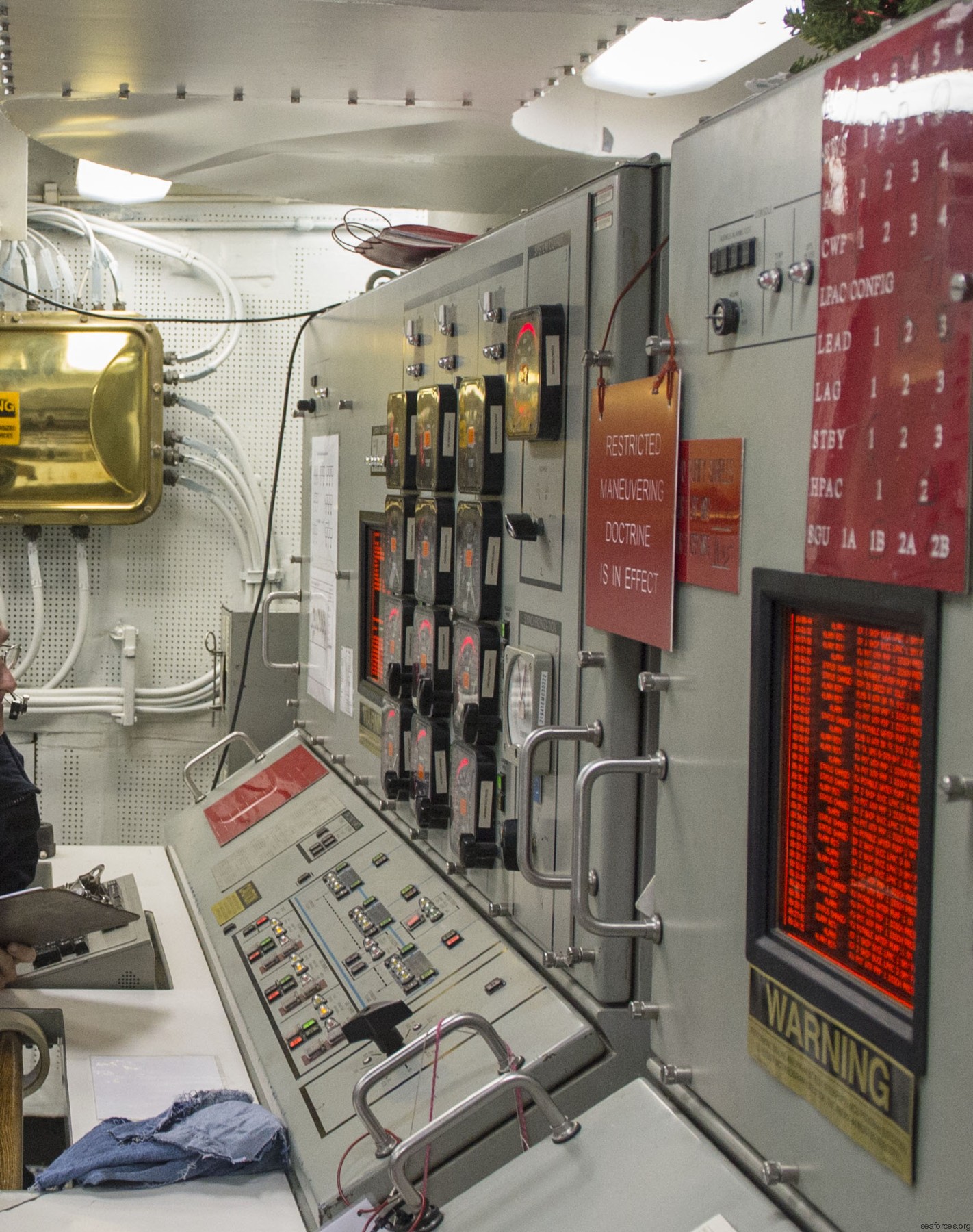 machinery control console - Mediterranean Sea - December 2014  Mk-45 gun fire exercise - Mediterranean Sea - November 2014  Mediterranean Sea - November 2014 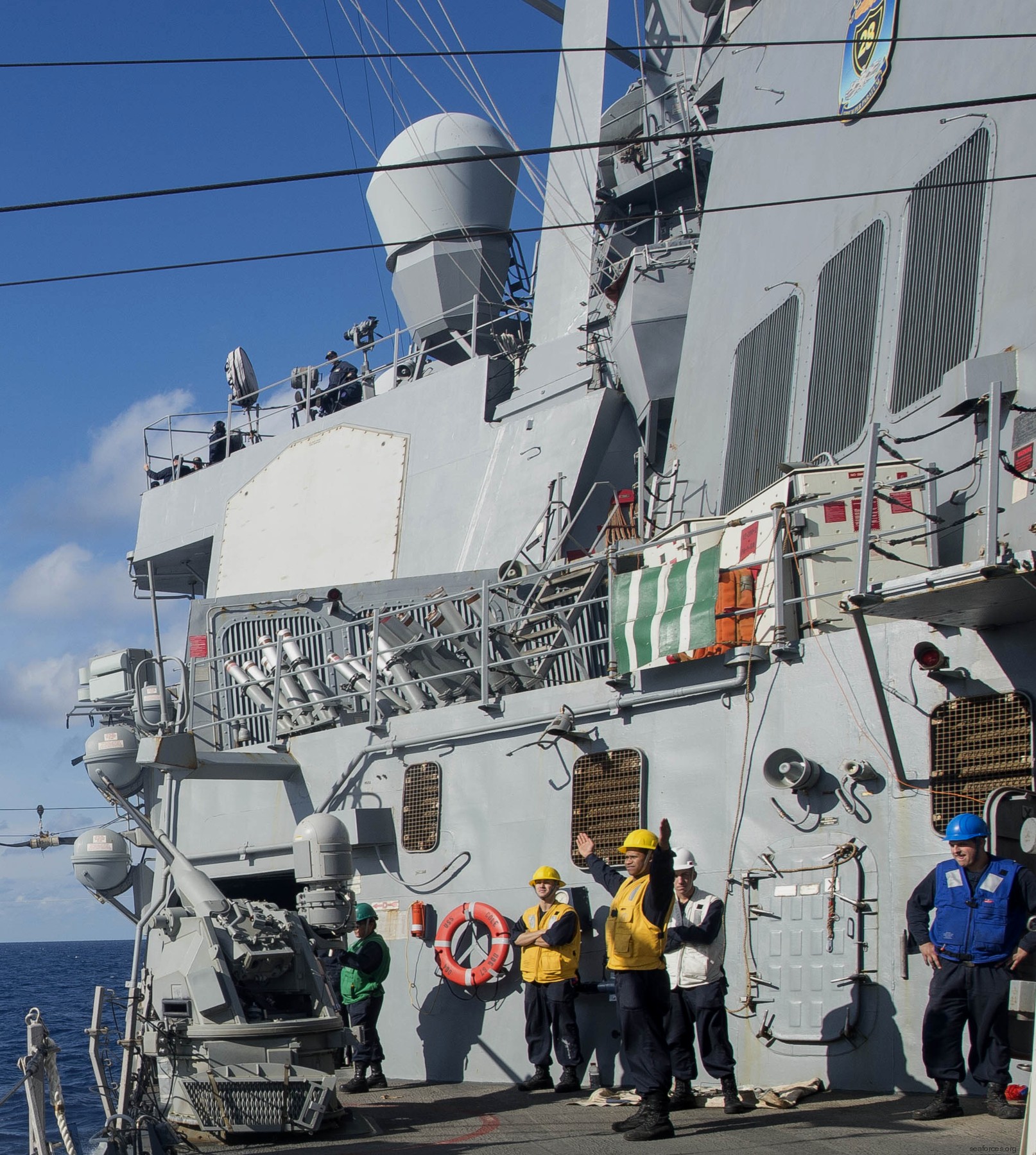 Mediterranean Sea - October 2014  Black Sea - October 2014  departing Naval Station Norfolk, Virginia - August 2014  Faslane, Scotland - March 2014  Atlantic Ocean - March 2014  Souda Bay, Greece - November 2012  Souda Bay, Greece - July 2012  Souda Bay, Greece - July 2012 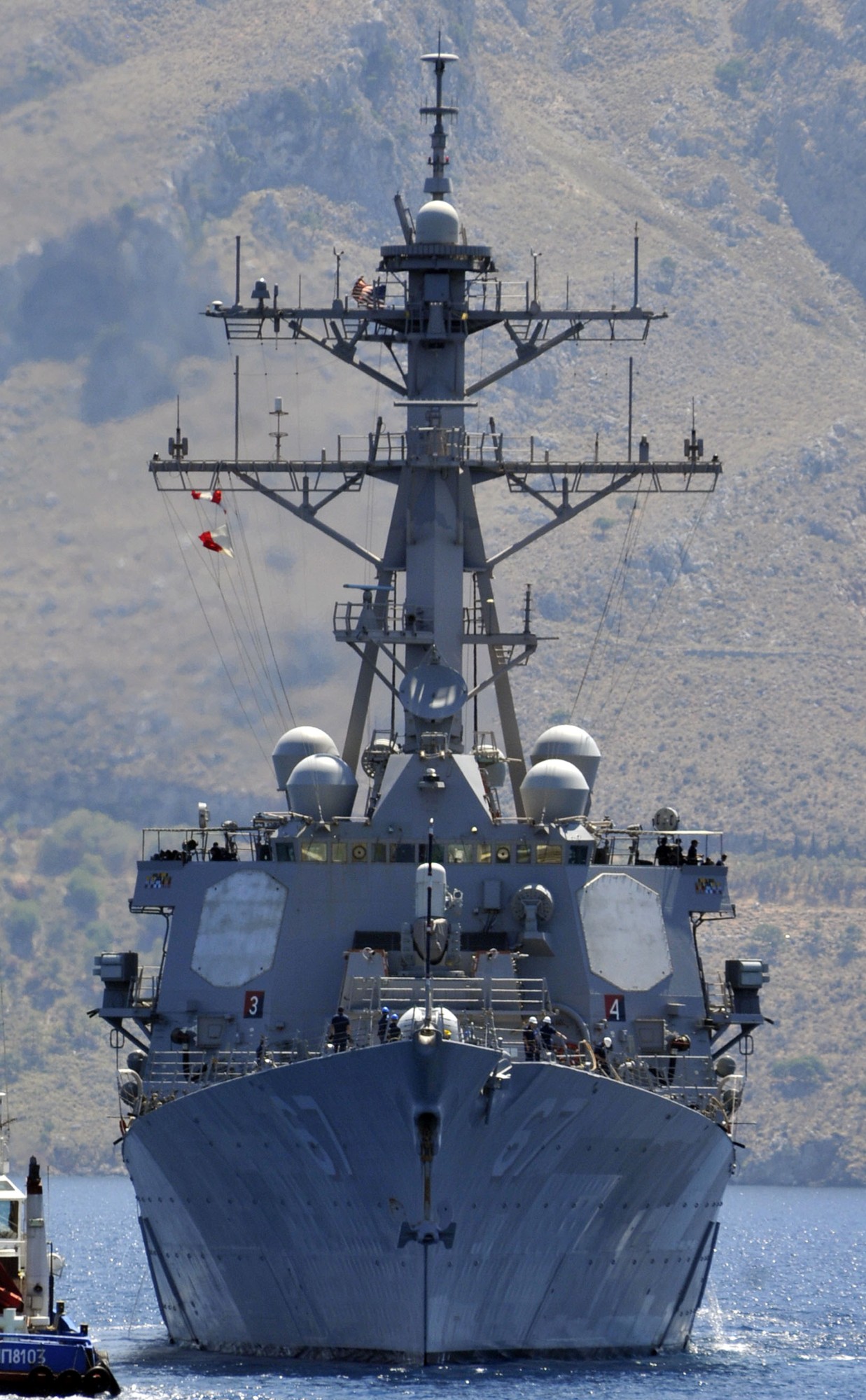 Souda Bay, Greece - July 2012  departing Naval Station Norfolk, Virginia - April 2012  Naval Station Norfolk, Virginia - October 2010 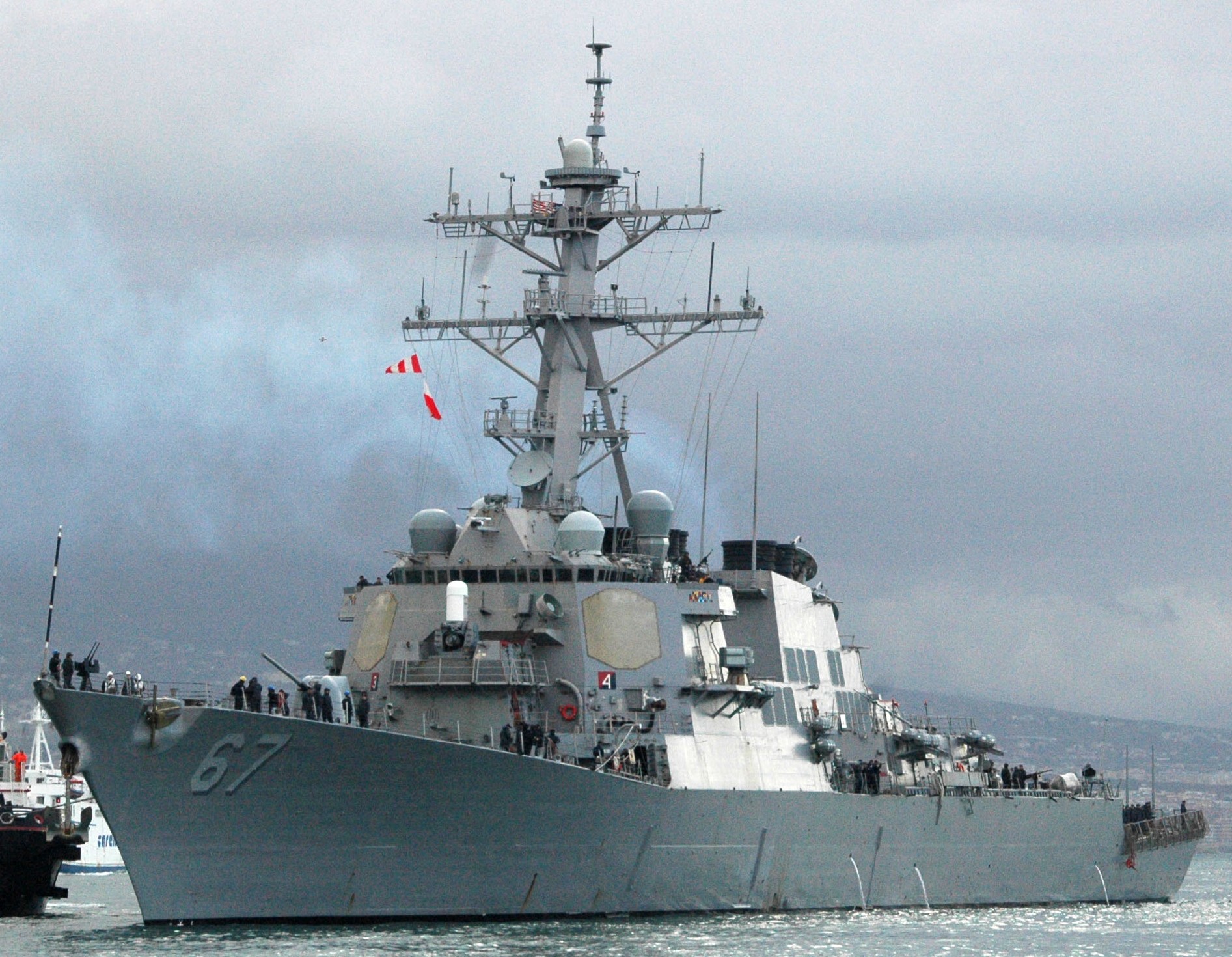 Naples, Italy - February 2010  Naples, Italy - February 2010 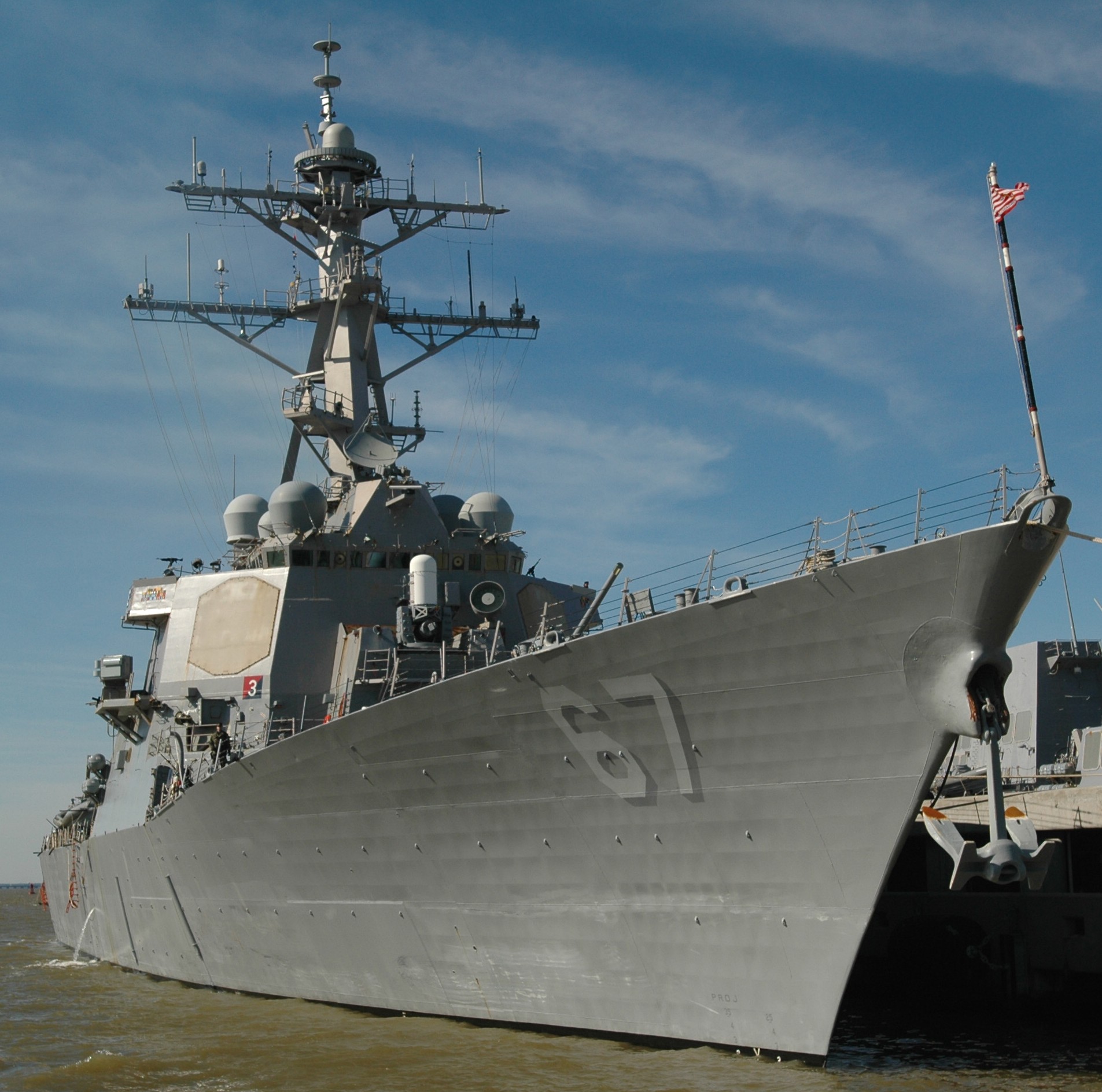 Naval Station Norfolk, Virginia - February 2010  Atlantic Ocean - September 2009  Valletta, Malta - March 2008 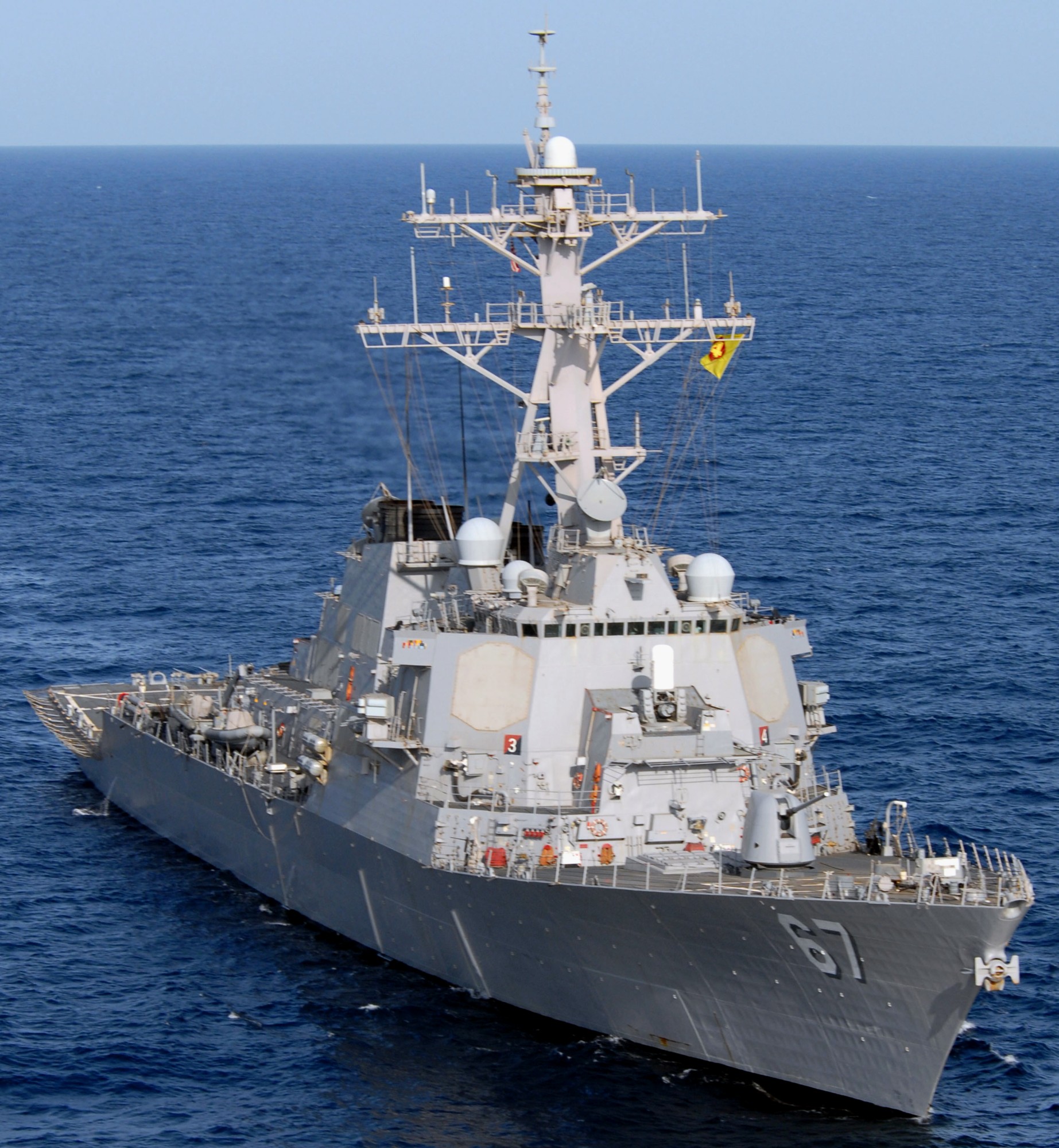 Gulf of Aden - August 2006  Gulf of Aden - August 2006 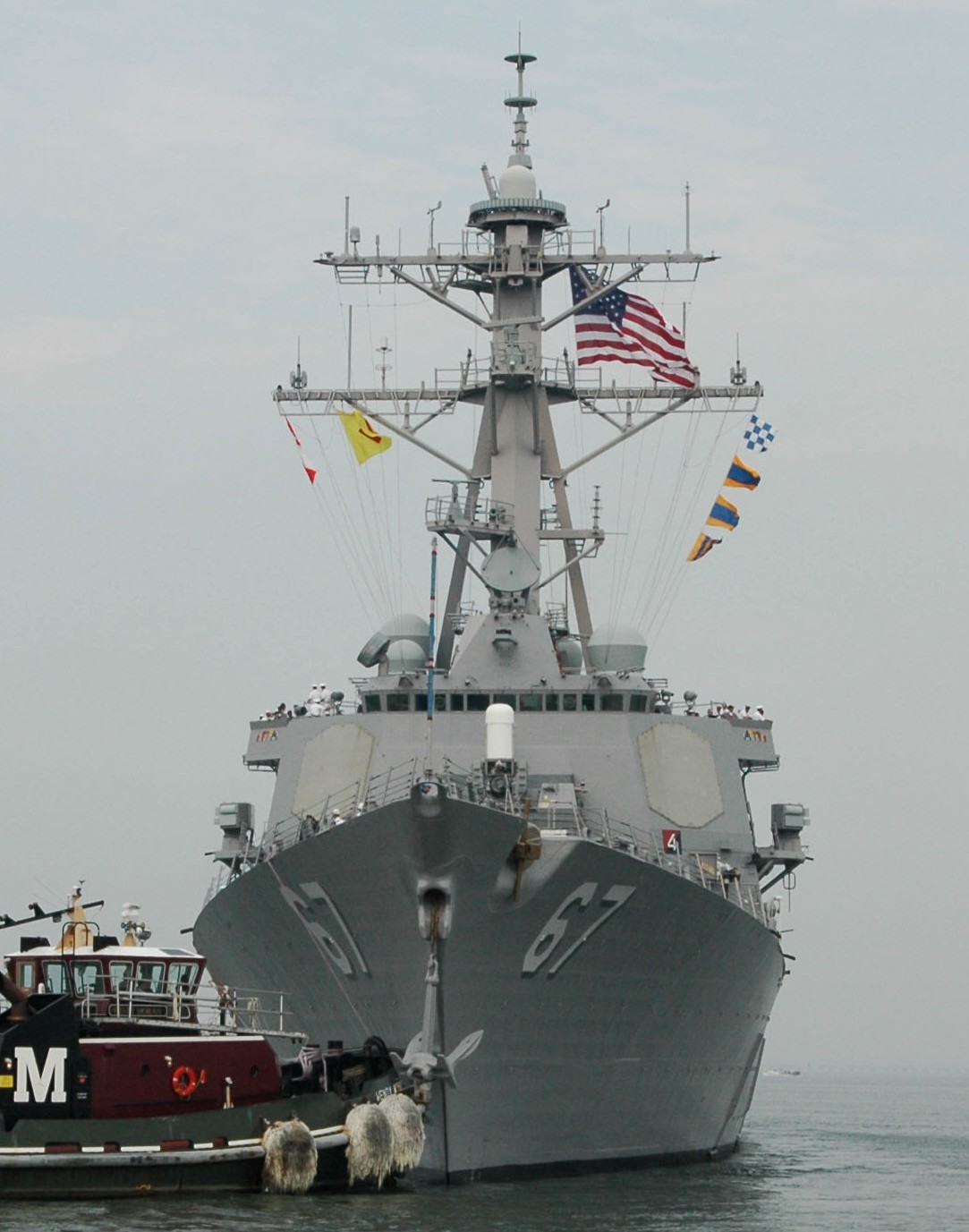 Naval Station Norfolk, Virginia - June 2006  Philadelphia, Pennsylvania - July 2005  Naval Station Norfolk, Virginia - February 2005  Naval Station Norfolk, Virginia - May 2004 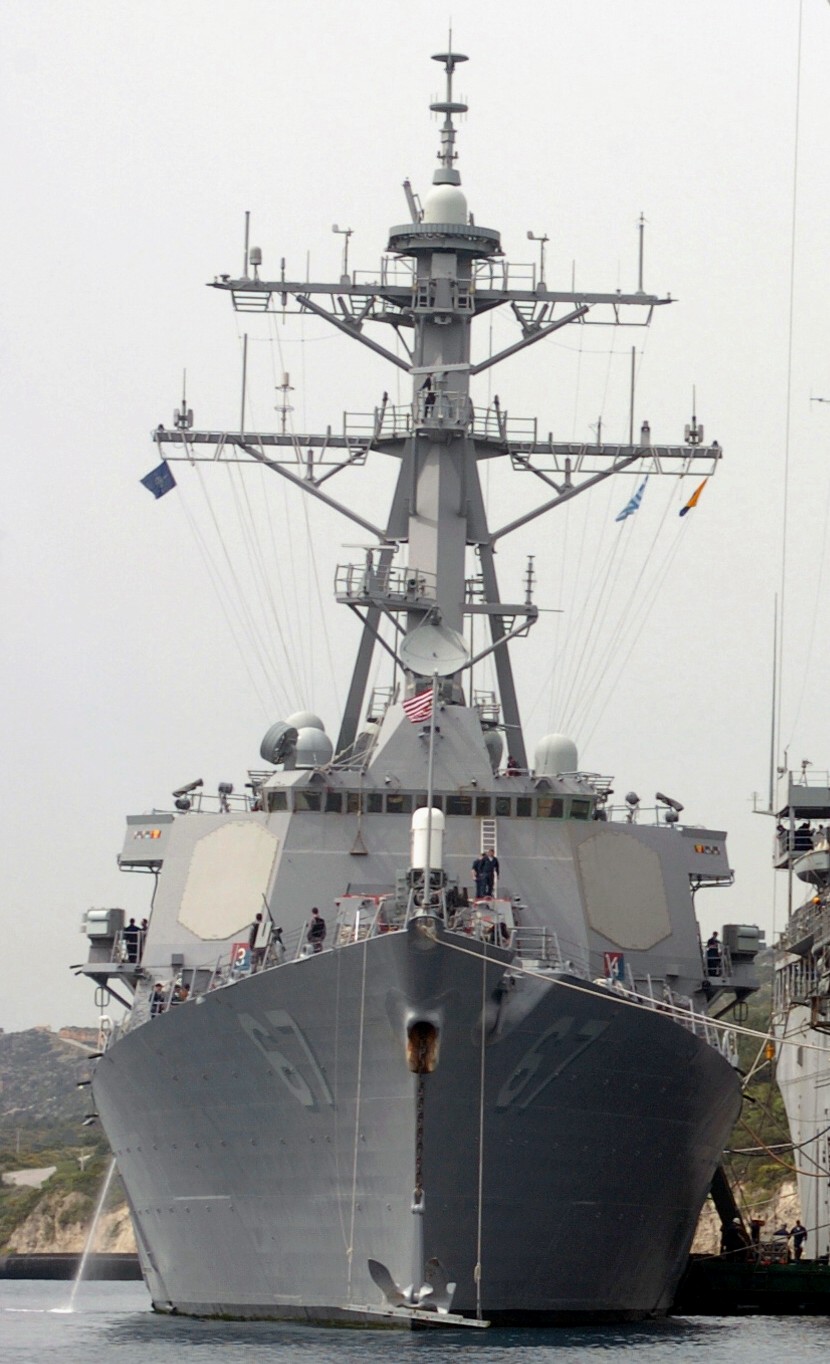 La Maddalena, Italy - March 2004  Souda Bay, Crete, Greece - January 2004  Souda Bay, Crete, Greece - January 2004  Naval Station Rota, Spain - December 2003  Atlantic Ocean - December 2003  Atlantic Ocean - December 2003  Atlantic Ocean - September 2003 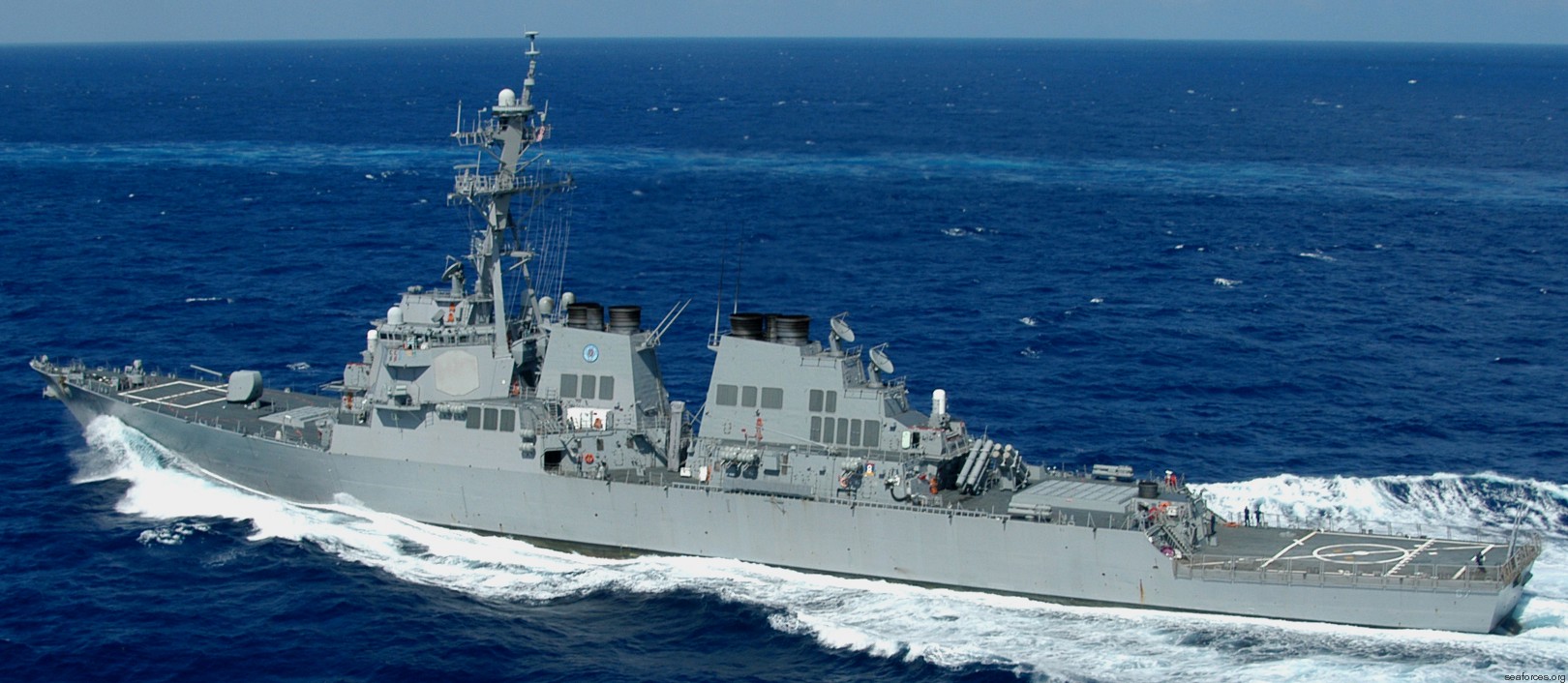 Atlantic Ocean - September 2003  Atlantic Ocean - September 2003  Atlantic Ocean - September 2002  Atlantic Ocean - August 2002  Atlantic Ocean - August 2002  Northrop Grumman Ship Systems (NGSS) Pascagoula, Mississippi - April 2002  Northrop Grumman Ship Systems (NGSS) Pascagoula, Mississippi - September 2001  arriving at Ingalls Shipyard, Pascagoula, Mississippi - December 13, 2000  M/V Blue Marlin carrying the damaged USS Cole - October 31, 2000  USS Cole is towed away from the port city of Aden, Yemen, into open sea - October 29, 2000  Port side view showing the damage sustained by USS Cole on October 12, 2000, after a suspected terrorist bomb exploded during a refueling operation in the port of Aden, Yemen  September 2000  Persian Gulf - March 1998 |
||
|
USS Cole (DDG 67): USS Cole (DDG-67) was laid down on 28 February 1994 at Pascagoula, MS, by Ingalls Shipbuilding Division, Litton Industries; launched on 10 January 1995; sponsored by Mrs. Lee Perry, wife of Secretary of Defense William J. Perry; and commissioned on 8 June 1996 at Port Everglades, FL, Commander M. Stewart O'Bryan in command. On 8 August 2000, with Kirk S. Lippold in command, Cole was deployed with guided missile frigate Simpson (FFG-56) and Military Sealift Command (MSC)-manned oiler USNS John Lenthall (T-AO-189) from Norfolk to the Mediterranean, Red Sea, Gulf of Aden, and Indian Ocean. On 12 October, while Cole refueled at Aden, Yemen, two al-Qaeda terrorists brought an inflatable Zodiac-type speedboat that carried a bomb alongside the destroyer, port side amidships, and detonated their lethal cargo. The explosion blew a 40-foot wide hole in Cole, but the crew’s valiant damage control efforts saved her. The attack killed 17 Sailors: 31-year-old Lt. j.g. Andrew Triplett; 35-year-old ETC Richard D. Costelow; 30-year-old EW1 Kevin S. Rux; 21-year-old HT2 Kenneth E. Clodfelter; 24-year-old EN2 Mark I. Nieto; 24-year-old EW2 Ronald S. Owens; 32-year-old OS2 Timothy L. Saunders; 22-year-old MS3 Ronchester M. Santiago; 19-year-old MSSN Lakeina M. Francis; 21-year-old ISSN Timothy L. Gauna; 22-year-old SMSN Cherone L. Gunn; 19-year-old ISSN James R. McDaniels; 22-year-old SN Lakiba N. Palmer; 19-year-old ENFN Joshua L. Parlett; 19-year-old FN Patrick H. Roy; 26-year-old FN Gary Swenchonis Jr.; and 19-year-old SN Craig B. Wibberley. In addition, 37 of their shipmates sustained wounds. The ships that supported Cole during Operation Determined Response from 12-31 October 2000 included: amphibious assault ship Tarawa (LHA-1); dock landing ship Anchorage (LSD-36); amphibious transport dock Duluth (LPD-6); guided missile destroyer Donald Cook (DDG-75); guided missile frigate Hawes (FFG-53); and Military Sealift Command (MSC)-manned tug USNS Catawba (T-ATF-168); along with Marines of the 13th Marine Expeditionary Unit (Special Operations Capable), and British frigates Cumberland (F.85) and Marlborough (F.233). Cole carried out emergent repairs and on 29 October stood out of Aden. The following day, MSC-manned heavy lift vessel Blue Marlin loaded the destroyer on board and sailed her to Pascagoula for extensive repairs, reaching that port on 13 December. Cole’s crewmembers were flown to Rhein-Main AFB Germany, and from there to Norfolk, VA. Cole’s Sailors then completed convalescent leave through 1 December, and the ship returned to the water on Christmas Eve and continued repairs and maintenance into 2001. On 12 October 2001, the USS Cole (DDG-67) Memorial was dedicated at Naval Station Norfolk to honor the memory of the victims. The Navy subsequently enhanced global force protection training during crucial transits, and Sailors qualified to fire M60 and Browning M2 .50 caliber machine guns to defend against assaults by low-slow flying aircraft and small boats. On 20 August 2003, Cole got underway with the Argentine destroyer Sarandí for a short group sail. Embarked onboard Cole was the Visit Board Search and Seizure (VBSS) Team from the destroyer Thorn. Together with Cole's two VBSS teams they conducted a series of Maritime Interdiction Operation (MIO) boardings on both Cole and Sarandí to practice for the upcoming COMPTUEX. On 21 August, Cole fired CIWS and 5-inch rounds during a Killer Tomato Exercise in addition to conducting a series of personnel transfers with Sarandí via Sarandí's helicopter. Three of each ship's officers spent a few hours on their counterpart. The destroyer Gonzalez joined the group to conduct their own MIO boardings, and on 22 August, all three ships conducted an underway replenishment with the supply vessel John Lenthall before heading back to Norfolk. The predeployment Composite Training Unit Exercise (COMPTUEX) tested Cole's crew and all of the Enterprise Strike Group from 10 September 2003 until the beginning of October, starting with a series of structured events. On the first day Cole's CIC teams participated in a jamming exercise, demonstrating the effects on Cole's sensors while being jammed. On 29 November 2003 Cole deployed for her first overseas deployment after the bombing. December began with Cole in company with fellow destroyers Gonzalez and Thorn, transiting the Atlantic Ocean for the deployment of Cruiser-Destroyer Group 12, the Enterprise strike group. On 1 December, all three ships conducted an underway replenishment with the supply vessel Arctic, the Surface Strike Group's last fuel stop until reaching Europe. She subsequently returned to her homeport of Norfolk, Virginia on 27 May 2004, without incident. In 2005 Cole participated in Exercise BALTOPS 05 in the Baltic Sea. Cole returned to the U.S. in early July and was able to attend Fourth of July Celebrations in Philadelphia. Cole deployed to the Middle East on 8 June 2006, for the first time since the bombing. While passing the port city of Aden the crew manned the rails to honor the crewmembers killed in the bombing. She returned to her homeport of Norfolk on 6 December 2006, again without incident. On 21 August 2006, the Associated Press reported that Cole's commanding officer at the time of the bombing, Commander Kirk Lippold, had been denied promotion to the rank of Captain. On 28 February 2008, Cole was sent to take station off Lebanon's coast, the first of an anticipated three-ship flotilla. On 12 November 2009, the Missile Defense Agency announced that Cole would be upgraded during fiscal year 2013 to RIM-161 Standard Missile 3 (SM-3) capability in order to function as part of the Aegis Ballistic Missile Defense System. On 3 February 2017, a U.S. defense official told Fox News that "The Navy sent USS Cole to the Gulf of Aden following an attack earlier this week [30 January] on a Saudi warship off Yemen by Iranian-backed Houthi rebels". Both Iran and the Houthis have denied they are collaborating with each other. |
||
|
Sergeant Darrell Samuel Cole (July 20, 1920 - February 19,
1945): Darrell Samuel Cole was born on 20 July 1920 in Flat River, Missouri. After graduating from high school in Esther, Missouri, he worked for the Civilian Conservation Corps as a forestry clerk and later was a machine operator in Detroit, Michigan. In August 1941, Cole enlisted in the Marine Corps Reserve and was sent to Parris Island, South Carolina for training, becoming a bugler after attending the Field Music School. He was transferred to the 1st Marines, 1st Marine Division and courageously participated in the Guadalcanal Campaign that began in August 1942, performing more like a machine gunner than a bugler. Immediately after the campaign, Cole put in for a transfer to perform the "regular duties" of a Marine Private First Class, but his request was denied "due to a shortage of field musics." He joined the 1st Battalion, 23d Marines, 4th Marine Division at Camp Lejeune, North Carolina in March 1943. In early February 1944, after another unsuccessful request for a occupational transfer, Cole participated in the invasion of Roi-Namur, on Kwajalein Atoll, again assuming duties as a machine gunner. His division then assigned him as a machine gun leader during the assaults on Saipan and Tinian in June and July 1944. When his squad leader was killed during a battle, Cole assumed command of the squad. For his combat performance on Saipan, he was awarded the Bronze Star. Following the Marianas Campaign, Cole again requested a rating change. This time, his bravery and fighting skills were rewarded with approval of the application and, in November 1944, by promotion to Sergeant. By the time the 4th Division took part in the invasion of Iwo Jima on 19 February 1945, he was serving as leader of a machine-gun section. In the face of tremendous small-arms, artillery and mortar fire that day, Cole led his men against Japanese defenses. After the unit's progress was halted by three enemy pillboxes, he resumed the advance, at times by himself. Armed with only a pistol and grenades, he made a series of attacks against the hostile strongpoints. His third assault destroyed the Japanese position, but Cole was killed while making his way back to his squad. For his "conspicuous gallantry and intrepidity" and "stouthearted leadership in the face of almost certain death", Darrell S. Cole was awarded the Medal of Honor. Medal of Honor citation of Sergeant Darrell Samuel Cole, USMCR (as printed in the official publication "Medal of Honor, 1861-1949, The Navy", page 168): "For conspicuous gallantry and intrepidity at the risk of his life above and beyond the call of duty while serving as Leader of a Machine-gun Section of Company B, First Battalion, Twenty-third Marines, FOURTH Marine Division, in action against enemy Japanese forces during the assault on Iwo Jima in the Volcano Islands, 19 February 1945. Assailed by a tremendous volume of small-arms, mortar and artillery fire as he advanced with one squad of his section in the initial assault wave, Sergeant Cole boldly led his men up the sloping beach toward Airfield No. 1 despite the blanketing curtain of flying shrapnel and, personally destroying with hand grenades two hostile emplacements which menaced the progress of his unit, continued to move forward until a merciless barrage of fire emanating from three Japanese pillboxes halted the advance. Instantly placing his one remaining machine in action, he delivered a shattering fusillade and succeeded in silencing the nearest and most threatening emplacement before his weapon jammed and the enemy, reopening fire with knee mortars and grenades, pinned down his unit for the second time. Shrewdly gaging the tactical situation and evolving a daring plan of counterattack, Sergeant Cole, armed solely with a pistol and one grenade, coolly advanced alone to the hostile pillboxes. Hurling his one grenade at the enemy in sudden, swift attack, he quickly withdrew, returned to his own lines for additional grenades and again advanced, attacked and withdrew. With enemy guns still active, he ran the gantlet of slashing fire a third time to complete the total destruction of the Japanese strong point and the annihilation of the defending garrison in this final assault. Although instantly killed by an enemy grenade as he returned to his squad, Sergeant Cole had eliminated a formidable Japanese position, thereby enabling his company to storm the remaining fortifications, continue the advance, and seize the objective. By his dauntless initiative, unfaltering courage and indomitable determination during a critical period of action, Sergeant Cole served as an inspiration to his comrades, and his stout-hearted leadership in the face of almost certain death sustained and enhanced the highest tradition of the United States Naval Service. He gallantly gave his life for his country."
|
||
| patches + more | ||
 |
||
|
|
seaforces.org |
USN ships
start page | |

